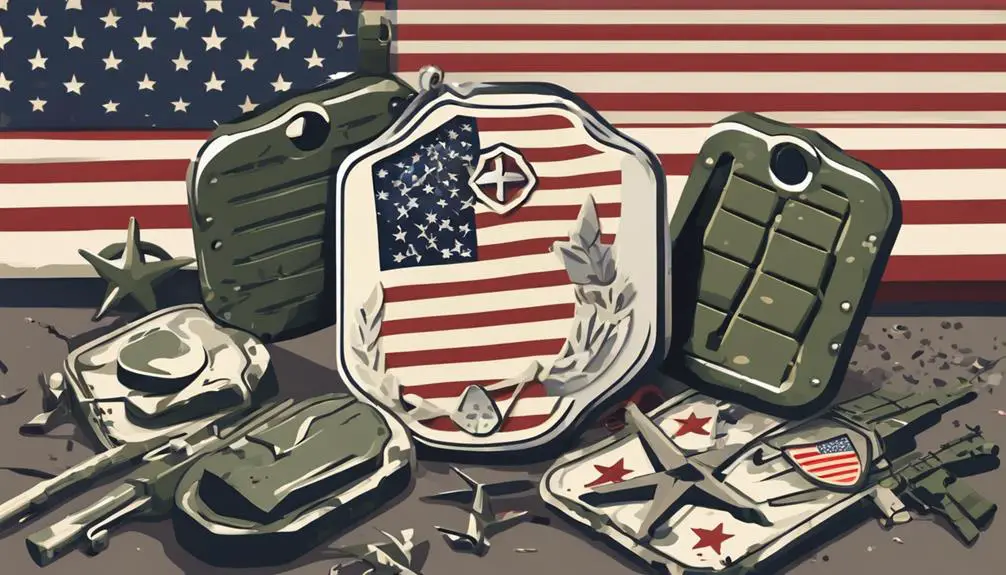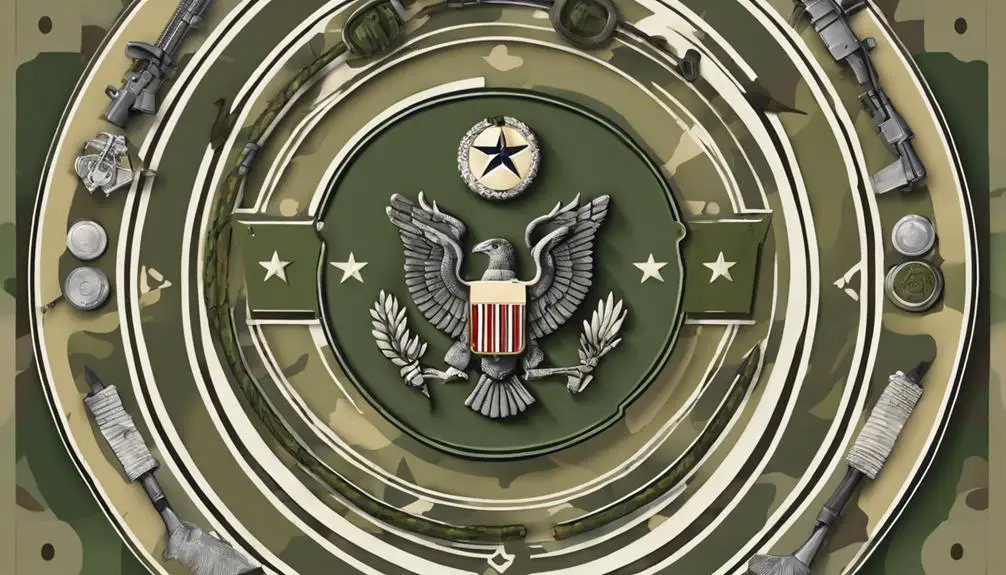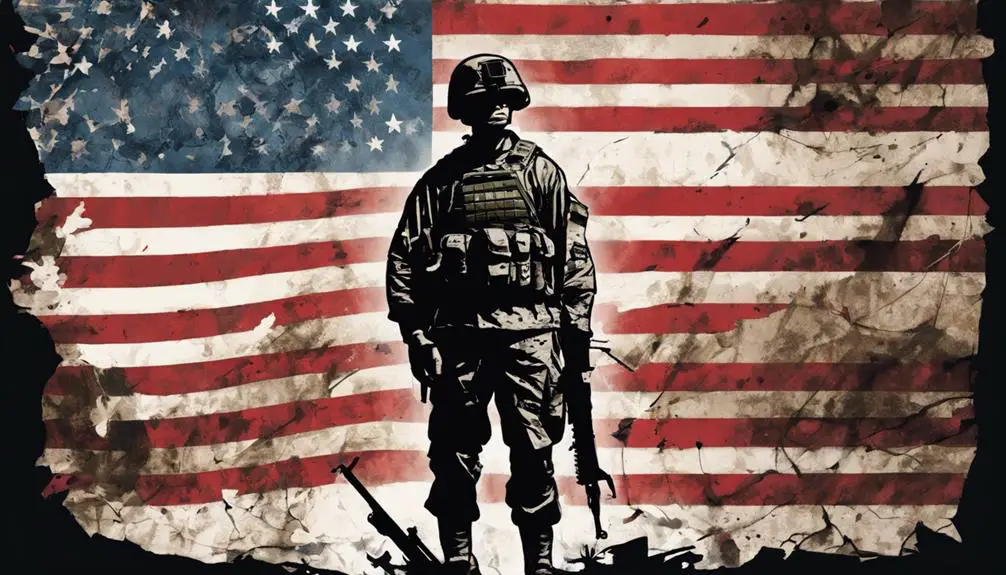You're about to gain a deeper understanding of the language that defines the US Army's culture, where acronyms, slang, and specialized terms are used to communicate efficiently and effectively in high-stress environments. You'll discover essential acronyms like HOOAH, FOB, and COMMS, as well as operational slang like OpSec and Sitrep. You'll learn terms for Army ranks and roles, like Butterbar and El-Tee, and everyday phrases like Roger that and Chow time!. As you explore further, you'll uncover more nuances of Army lingo, from Danger close to Warzone Etiquette, and beyond – the more you explore, the more you'll grasp the intricacies of Army communication.
Essential Army Acronyms Decoded

From 'HOOAH' to 'FOB,' understanding essential Army acronyms is crucial to traversing the military's complex communication landscape. As you navigate the Army's communication channels, you'll encounter a plethora of abbreviations and jargon that might leave you puzzled. Don't worry, we're here to assist you!
Familiarizing yourself with Army jargon and tactical abbreviations will enhance your understanding of military operations and facilitate seamless communication.
You'll often come across acronyms like 'SITREP' (Situation Report), 'OPS' (Operations), and 'COMMS' (Communications). These abbreviations are used to convey critical information quickly and efficiently. For instance, 'FOB' (Forward Operating Base) refers to a temporary or permanent military base, while 'HOOAH' is a battle cry used to express enthusiasm or motivation.
Mastering Army acronyms will help you decode military communications and stay informed about ongoing operations. By recognizing these essential abbreviations, you'll become more confident in your ability to navigate the Army's complex communication landscape.
Slang for Military Operations
As you venture deeper into the Army's communication landscape, you'll encounter a unique language of slang terms that military personnel use to describe various aspects of military operations. These terms are essential for effective communication, especially in high-stress situations.
One important aspect of military ops is OpSec, short for Operational Security. OpSec lingo refers to the language used to maintain secrecy and protect sensitive information from falling into the wrong hands. You'll hear phrases like 'need-to-know' or 'eyes only' to make sure that classified info is shared only with authorized personnel.
Tactical chatter is another crucial component of military communication. It involves using coded language to convey critical information quickly and efficiently during operations. For instance, 'sitrep' means situation report, while 'comms' refers to communication systems. You might also hear 'push-to-talk' or 'PTT' when referring to radios or other communication devices.
Familiarizing yourself with these terms will help you better understand the intricacies of military operations and communicate effectively with your team. By grasping this specialized language, you'll be better equipped to navigate the complex world of military operations.
Terms for Army Ranks and Roles

You'll encounter a range of Army ranks and roles, each with its own unique slang terms that help define responsibilities and clarify chain of command. Understanding these terms is essential for effective communication and navigation within the Army's hierarchical structure.
Ranks Explained
————-
| Rank | Slang Term |
|---|---|
| General | "The General" or "Flag Officer" |
| Officer | " Butterbar" (2nd Lieutenant) or "El-Tee" (1st Lieutenant) |
| Non-Commissioned Officer (NCO) | "Sergeant" or "Staff Sergeant" |
From "butterbar" for a 2nd Lieutenant to "Top" for a Command Sergeant Major, Officer Lingo is an essential part of Army culture. Mastering these terms will help you navigate the Army's complex hierarchy and communicate effectively with your peers. Ranks are not just titles; they come with distinct responsibilities and expectations. By understanding the slang terms associated with each rank, you'll better comprehend the Army's chain of command and your role within it.
Phrases for Everyday Army Life
In addition to understanding Army ranks and roles, you need to familiarize yourself with the phrases that are essential to everyday Army life, where brevity and clarity are vital in high-stress situations.
You'll quickly pick up on phrases like 'Roger that' (meaning 'I understand') and 'Hooah' (an expression of enthusiasm or agreement). You'll also hear 'Barracks Banter,' casual conversations among soldiers in the barracks, often involving good-natured teasing or jokes.
In the Mess Hall, you might hear 'Chow time!' or 'Grub's on!' signaling mealtime. You might also hear 'Fall out' or 'Drop your gear,' indicating it's time to put away your equipment.
Phrases like 'Saddle up' or 'Gear up' mean it's time to get ready to move out. When an officer says 'At ease,' it means you can relax, but remain standing. 'Dismissed' means you're free to go.
Mastering these phrases will help you navigate everyday Army life with confidence and clarity. By incorporating them into your vocabulary, you'll better understand and communicate with your fellow soldiers, making your Army experience more efficient and effective.
Deployed and in Combat Zones

When deployed in combat zones, you'll need to grasp specialized slang to guarantee clear communication and maintain situational awareness. Familiarize yourself with terms like 'danger close' (friendly forces in close proximity to enemy fire) and 'priority of fire' (allocating firepower to specific targets). Understanding these phrases can mean the difference between life and death.
In high-stress environments, Combat Fatigue can set in, causing mental and physical exhaustion. Recognize the signs – irritability, fatigue, and decreased performance – and prioritize self-care. Share the load with your unit, and don't hesitate to seek support.
Warzone Etiquette is also essential. Respect local customs, even in the midst of chaos. Avoid cultural faux pas, like not removing your helmet in the presence of local leaders or failing to use your right hand when eating or giving/receiving items. These small gestures can foster trust and cooperation with local allies.
Frequently Asked Questions
Can I Use Military Slang in Formal Army Communications?
When communicating in formal settings, you should avoid using colloquial language, including military slang. Instead, opt for a formal tone and professional language that conveys respect and clarity.
In formal army communications, maintaining a level of professionalism is crucial, and using slang can detract from that. Stick to standard English to guarantee your message is clear and taken seriously.
Are Military Slang Terms Universal Across All Branches?
You might assume that military slang terms are universal across all branches, but that's not the case. Branch variations and service differences play a significant role in shaping slang usage.
What's common in the Army mightn't be familiar in the Navy or Air Force. For instance, the term 'HOOAH' is more commonly used in the Army, while 'Oorah' is preferred in the Marine Corps.
You'll need to be mindful of these differences when communicating across branches.
Can Civilians Use Military Slang Without Being Disrespectful?
When using military slang, you might wonder if you're being disrespectful. The answer lies in understanding cultural appropriation and language barriers.
Be mindful of adopting terms without grasping their context or significance. Using military slang can be a form of cultural appropriation, disrespecting the community that originated it.
However, if you're genuinely interested in learning and respectful of the language's roots, using military slang can be a way to connect with the community, not exploit it.
Are There Regional Differences in Army Slang Usage?
As you explore linguistic patterns, you'll discover geographic variations in slang usage. Cultural influences shape the way people communicate, and regional differences emerge.
You'll find that certain phrases dominate in specific areas, reflecting local culture and history. For instance, coastal regions may adopt nautical terms, while inland areas use farming-inspired slang.
These regional differences add flavor to language, making it richer and more diverse.
Can I Create My Own Military Slang Terms in the Army?
Did you know that the average person uses around 10-15 slang terms daily?
Now, let's talk about creating your own military slang terms in the army.
While it's not encouraged to deviate from standard communication protocols, you can contribute to slang evolution by inventing terms that become widely adopted.
Just remember, term invention should prioritize clarity and avoid confusion.
Conclusion
As you lace up your boots and grab your rifle, the cacophony of Army slang swirls around you. You're not just a soldier, you're a 'grunt' on the 'front lines' of a 'FOB' (forward operating base).
The 'sarge' yells 'HOOAH!' as you initiate a 'patrol' through the 'AO' (area of operation). Amidst the chaos, you 'gear up' for a 'firefight' and hope to 'RTB' (return to base) unscathed.
The Army's lexicon is your armor; understand it, and you'll be 'locked and loaded' for anything.







